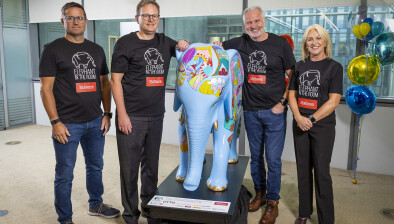Access to birth information bill published after revisions

Roderic O'Gorman
Proposed legislation which will provide a right of access to birth certificates, birth and early life information for people who have questions about their origins has been published.
The Birth Information and Tracing Bill 2022 will give new rights to people who were adopted, boarded out, the subject of an illegal birth registration or who otherwise have questions in relation to their origins.
The government said it has made revisions to the bill in response to issues raised during pre-legislative scrutiny, particularly around the requirement for an information session where a parent has expressed a no-contact preference.
The revised bill allows for an information session to take place by means of a short phone call or video call, rather than a physical meeting, and removes the requirement for the information session to be held by a social worker.
The information session will also include explicit recognition of the identity rights of the applicant and their right to access their birth certificate and birth information.
The bill also now provides that next-of-kin will be able to avail of the legislation to access information about a family member in specific circumstances; the definition of early life information has been expanded to provide for the release of baptismal certificates and entries on the baptismal register; and the legislation will use the term “mother” instead of “birth mother”.
Beyond access to information and records, the legislation will also establish a comprehensive tracing service for persons who want to make contact with family or who wish to seek or share information, as well as a new statutory contact preference register.
For people who are the subject of an illegal birth registration, the bill will provide a legal mechanism for provision of an accurate birth registration to affected individuals, while remaining mindful of their current identity.
Children’s minister Roderic O’Gorman said: “This legislation has been an absolute priority for me. For decades in this country, adopted people have been failed in being denied clear access to their identity information.
“With this bill, we are restoring to adopted people the information that so many of us take for granted as part of our own, personal stories. The bill ends Ireland’s outlier status in terms of having legislation that provides access to information about one’s origins.
“Over the past year, I have spoken to hundreds of persons affected by adoption, illegal birth registration, the system of boarding out or the legacy of mother and baby and county home institutions. I know how important this legislation is to so many of them and that is why I am absolutely committed to advancing it as quickly as possible this year.
“While the legislation aims to help those with questions on their origins, it also provides important services relating to contact and sharing of information. I hope that these other services will be valuable, not only to adopted persons, but also to mothers seeking contact with, or information on, their adopted child, as well as other family members.”
Mr O’Gorman said he intends to begin the second stage of the priority legislation in the Oireachtas within the next two weeks.








